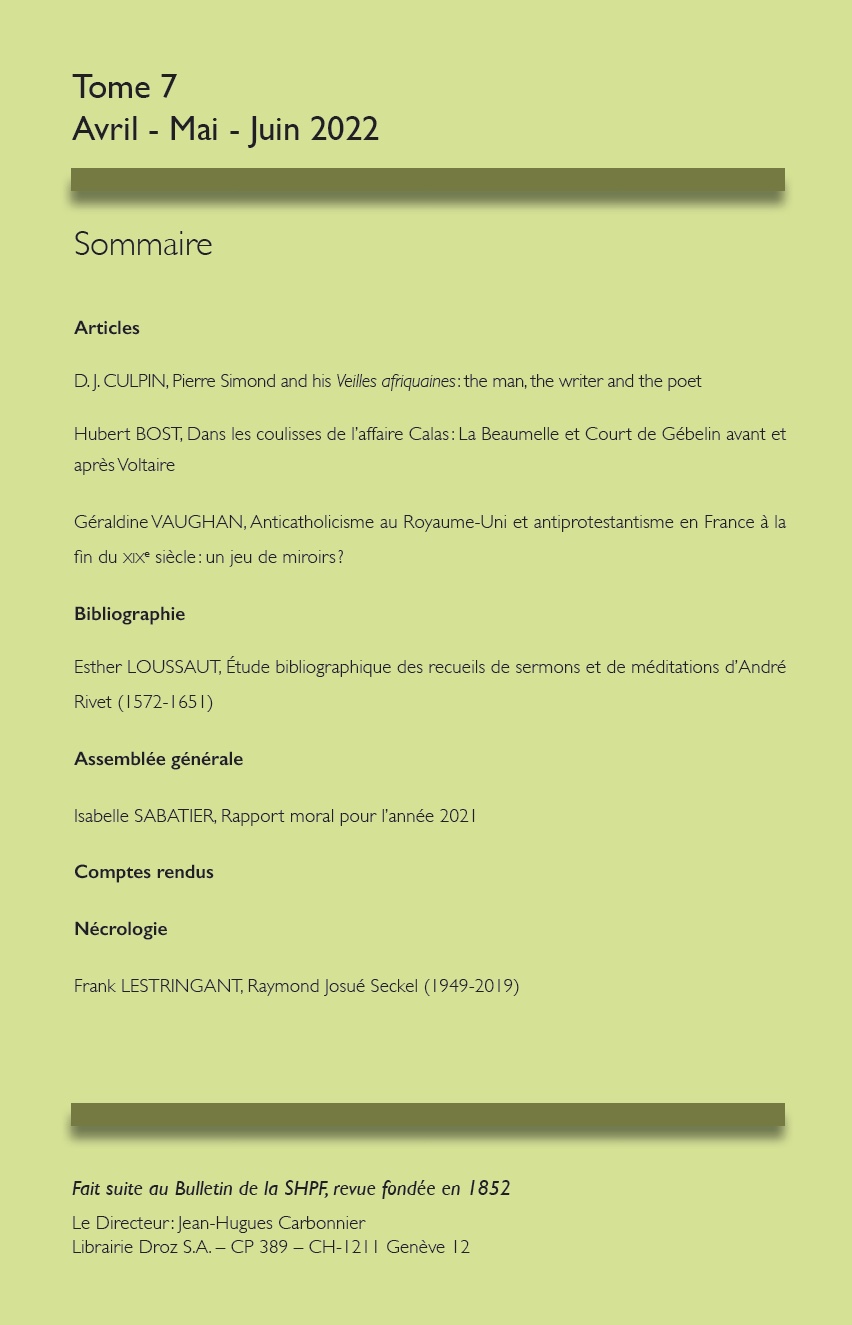Pierre Simond and his Veilles afriquaines
The man, the writer and the poet
Abstract
The first French Huguenots arrived at the Cape of Good Hope in 1688, accompanied by Pierre Simond, their “minister of religion”. Eleven years later Simond began a new verse translation of the Huguenot psalter, which was published in Amsterdam in 1704 under the title Veilles afriquaines, comprising principally the first 51 psalms. This text, which has been called the first literary and theological text published in South Africa, quickly disappeared and came to light again only in 1997. Since its rediscovery the text has been the object of studies bearing essentially on biographical, bibliographical and theological questions. However, at the present time, no analysis has been undertaken of the literary, linguistic and poetic aspects of the Veilles afriquaines. Our study, which aims to fill this gap, focuses first of all on questions linked to the genesis and development of the text which are raised by Simond himself in the Preface to the psalter; it then turns to an analysis of Simond’s language and poetry which are seen in relation to contemporary dictionaries and books on good usage. The conclusions which arise from this analysis bring us closer to the lived reality of the first Huguenots in South Africa, and illustrate the development of French language and poetry at a turning point in history.
Keywords
Pierre Simond, Veilles afriquaines, Huguenots, Geneva Psalter, South Africa
How to Cite
More Citation Formats

